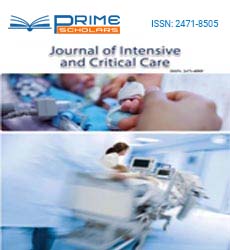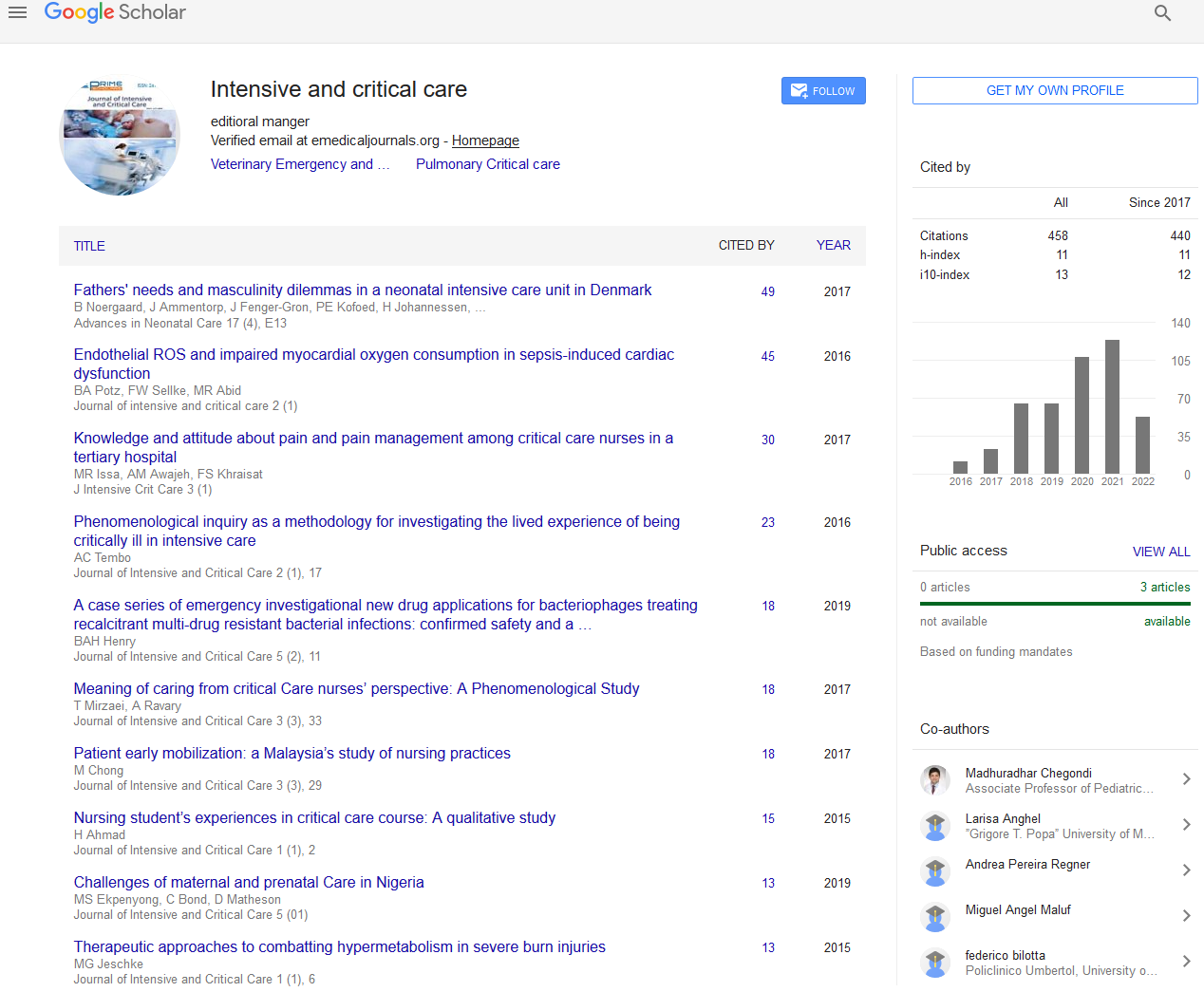Opinion - (2023) Volume 9, Issue 3
Forecast of Unremitting Basic Sickness in a Common Seriously Care Unit
Grigorios Kotronoulas*
Department of Nursing and Midwifery, University of Dundee, United Kingdom
*Correspondence:
Grigorios Kotronoulas,
Department of Nursing and Midwifery, University of Dundee,
United Kingdom,
Email:
Received: 31-May-2023, Manuscript No. IPJICC-23-16790;
Editor assigned: 02-Jun-2023, Pre QC No. IPJICC-23-16790 (PQ);
Reviewed: 16-Jun-2023, QC No. IPJICC-23-16790;
Revised: 21-Jun-2023, Manuscript No. IPJICC-23-16790 (R);
Published:
28-Jun-2023, DOI: 10.35248/2471-8505-9.3.29
Introduction
In today’s fast-paced and information-driven world, the ability
to think critically is becoming increasingly important. Chronic
critical thinking refers to the habitual practice of analysing,
evaluating, and synthesizing information to make informed decisions
and solve complex problems. It goes beyond occasional
bouts of critical thinking and becomes an integral part of one’s
mind-set. In this article, we will explore the significant benefits
of chronic critical thinking and how it can positively impact
various aspects of our lives. One of the primary advantages
of chronic critical thinking is the development of enhanced
problem-solving skills. By engaging in critical thinking consistently,
individuals become adept at breaking down complex
issues into smaller, manageable components. They develop
the ability to identify the root causes of problems and generate
creative and effective solutions. Chronic critical thinkers are
more likely to approach challenges with a systematic and logical
mind-set, leading to improved problem-solving outcomes.
In today’s world, decision-making can often be overwhelming,
given the multitude of options and the potential consequences
associated with each choice. Chronic critical thinking provides
individuals with the tools to make better decisions. By analysing
available information, evaluating different perspectives,
and considering potential outcomes, critical thinkers are more
likely to make informed and rational choices. They can identify
biases, assumptions, and fallacies that might cloud judgment
and, as a result, make decisions that align with their goals and
values. Chronic critical thinking also contributes to the development
of effective communication skills.
Description
Critical thinkers are skilled at articulating their thoughts clearly,
precisely, and persuasively. They can construct compelling arguments
and support them with evidence, making their ideas
more convincing. Additionally, chronic critical thinkers actively
listen to others, seeking to understand different viewpoints
and engaging in constructive dialogue. Such communication
skills enable individuals to engage in meaningful discussions,
collaborate effectively, and foster positive relationships. In a
rapidly changing world, adaptability and flexibility are crucial
skills. Chronic critical thinking encourages individuals to be
open-minded, receptive to new ideas, and willing to challenge
their own beliefs and assumptions. By continuously evaluating
and updating their knowledge and perspectives, critical thinkers
can adapt to new situations and embrace change more
readily. They are less likely to be resistant to innovation or stuck
in rigid patterns of thinking, enabling them to navigate uncertainties
and thrive in dynamic environments. Chronic critical
thinking significantly strengthens analytical skills. Critical thinkers
are skilled at gathering, assessing, and interpreting information
from various sources. They can differentiate between
reliable and unreliable information, identify logical fallacies,
and detect biases.
Conclusion
Chronic critical thinking is a powerful cognitive tool that provides
individuals with a range of benefits in both their personal
and professional lives. By honing their problem-solving skills,
improving decision-making abilities, and enhancing their communication
and analytical skills, individuals can navigate challenges
more effectively and achieve greater success. Additionally,
chronic critical thinking fosters adaptability, self-reflection,
and creativity, allowing individuals to embrace change, learn
from their experiences, and drive innovation. As we continue
to navigate an increasingly complex world, cultivating chronic
critical thinking is essential for personal growth, success, and
the advancement of society as a whole.
Citation: Kotronoulas G (2023) Forecast of Unremitting Basic Sickness in a Common Seriously Care Unit. J Intensive Crit Care. 9:29.
Copyright: © 2023 Kotronoulas G. This is an open-access article distributed under the terms of the Creative Commons Attribution License, which permits unrestricted use, distribution, and reproduction in any medium, provided the original author and source are credited.

